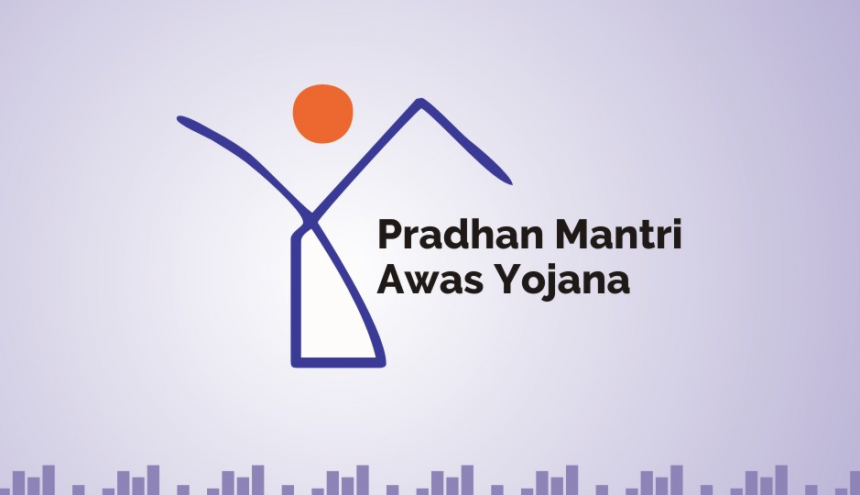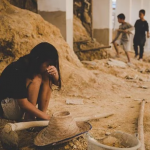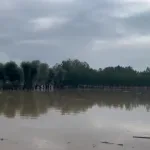It is often said that shelter, clothing, and bread are the basic necessities of life. However, shelter (home) is more important because it provides safety, stability, and dignity — the foundation for a secure and empowered life. Where women once seemed helpless and hopeless due to the lack of homeownership rights, the PMAY scheme has made them hopeful, powerful, and respectable. Some life stories of beneficiaries under PMAY and Housing for All in Kashmir are heart-wrenching and deeply impactful. Hence, Hon’ble PM rightly said that PMAY will benefit countless people and contribute to better cities.
Handwara, the Northern Kashmir — In a simple three-room pucca house that boasts a hand-woven carpet on the floor and a vase full of marigold flowers on the window sill, 35-year-old Gulshana Begum serves nun chai to her children. Three daughters and two sons of her very politely sitting around, a hope and happiness glittering in their eyes.
Two winters ago, the seven-member family huddled in a one-room mud hut that leaked during snowfall. “I never imagined that we would have a solid roof,” she says, running her fingers over the cemented wall with evident pride. The break came in 2021, when she was allotted a house under the Pradhan Mantri Awas Yojana-Gramin (PMAY-G)—title deed in her name.
Throughout the length and breadth of Jammu & Kashmir, such stories are unfolding silently from old, fragile homes, witness not only concrete walls but a social stability, empowerment, and aspiration.
Pradhan Mantri Awas Yojana (PMAY), launched in 2015, is a mission of “Housing for All” by providing pucca houses with facilities to families residing in kutcha or old houses. It is being implemented through two separate arms, namely PMAY-Gramin for rural and PMAY-Urban for towns and cities.
According to the PMAY-G dashboard- MoRD, as of April 2025_3,86,65,404 houses have been Registered, among 3,60,45,157 houses have been sanctioned and 2,74,33,208 houses are complete all across the country.
In J&K, 335,613 houses have been registered, 334,825 have been sanctioned, and 309,764 have been completed so far, depicting a 90.46% completion rate against the MoRD target. The process gained momentum, especially after Article 370 was abrogated in 2019. The convergence of different schemes became possible, enabling housing for all with full facilities.
Schemes like Ujjwala Yojana (Free LPG), Jal Jeevan Mission (Tap Water), and Swachh Bharat Abhiyan (Toilets) have made it a complete home, with an efficient rollout of these initiatives in the region. Such convergence reduces the financial burden on households while boosting hygiene and security—especially crucial for women and children in turbulent areas like Kashmir.
Under PM Ujjwala yojana, over 10 crore free LPG connections were provided nationwide. Ration for 80 crore needy citizens, the Saubhagya Yojana and theJal Jeevan Mission aimed to provide electricity and piped water to every rural household ensuring better access to clean drinking water in the region, giving poor the confidence that they can live with dignity.
Under Swatch Bharat Abhiyan over 12 crore toilets got constructed which enhanced the sanitation and infrastructure contributing to the better public health outcomes. As per MoRD Annual Financial Statement 2023–24, Rs. 3,500 Crore (cumulative Central + UT share) has been disbursed for PMAY in J&K since 2016.Also, as per MoRD Gender Inclusion Report 2023, 42% of rural PMAY houses in J&K are either solely or jointly registered in women’s names.
What the numbers don’t show?
The numbers only tell half the story. In Kashmir where shelter has long been intertwined with insecurity, a permanent home means more than just walls. PMAY mandates that homes be registered in the name of a female member or jointly.
This has quietly challenged patriarchal norms across J&K. 63% of female PMAY beneficiaries reported having greater say in household financial decisions and 41% said their social status improved within their extended families. These shifts may seem small, but in traditional setups, property ownership is a seismic shift for women.
In a valley where fragility has long defined the everyday, a solid home especially one bearing a woman’s name is quietly revolutionary. This phenomenon is being documented in rural clusters where women’s names on property documents have led to increased confidence and household participation.
Children such as 10-yearold Sadaf no longer trudge miles of snow to get water. Her home, built under PMAY and connected with the Jal Jeevan Mission, boasts piped water, freeing her mornings for school. Her mother, Ulfat, has the freedom to focus on adult literacy classes. “The day I signed my name on our land deed was the happiest of my life,” she says. These are not numbers; these are tales of time recovered, dignity recovered, and aspirations rising, resonating from all across the valley.
For women, though, the transformation is quietly revolutionary. In a region where women have long been denied property rights, a title deed in her name is a revolution. It is not just a legal document, but a symbol of recognition. In rural Handwara-Kashmir, Gulshana Begum, used the strength of her PMAY house to start a home-based tailoring unit and train other young women in her village. “This roof is more than protection—it’s the foundation of my future,” she says.
According to the 2024 UT-level Gender Monitoring Report, almost two-thirds of women beneficiaries reported improved control over household decisions and a new sense of respect within their families.
Beyond the doors and windows, these homes are healing invisible scars—of war, exclusion, and displacement. In communities once filled with uncertainty, pucca homes have begun to construct a more stable social fabric. For young people, especially, the availability of permanent homes and access to services is a signal that the state is investing in their future. The mood is subdued, but powerful, a shift from alienation to belonging.
Now families have the safe roof above their heads, protecting them from the weather, empowered women with security and dignity, educated children, and families with basic access to services. This created a new social compact, homes to hope, stability to ambitions, and dignity as the rule, not the exception.
In the villages and valleys of Kashmir, the story of PMAY is no longer one of building, it is one of believing. One house at a time, it is rewriting what it means to dream, to belong, and to live and realising the dream of Viksit Bharat.
(Author can be reached at: [email protected])








